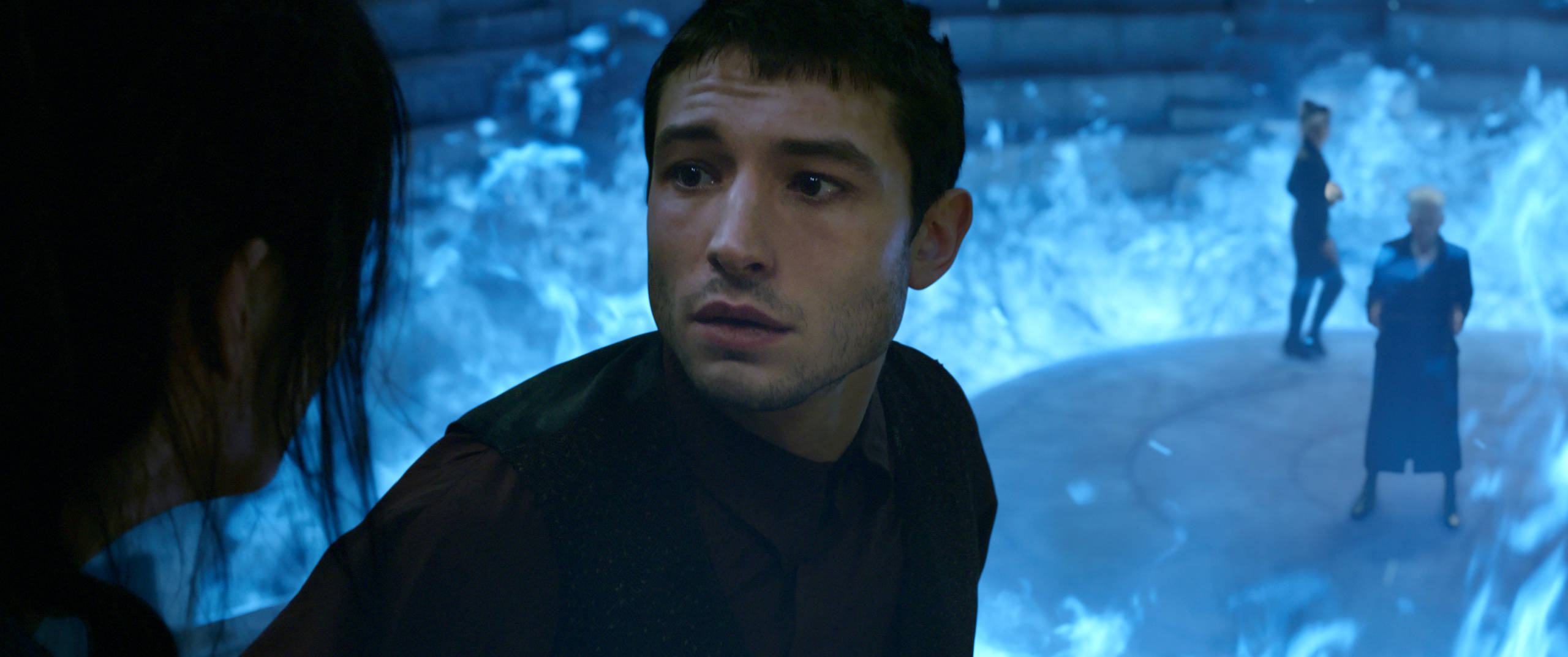Ezra Miller speaks about his career in a stage whisper, as though someone might wake him from a dream if he talks any louder. Especially when he’s on the subject of Credence, his character in Fantastic Beasts and Where to Find Them.
‘So I’d heard about the part,’ he starts, ‘and remember that to me – someone who got into Harry Potter so young, as a fan – I thought this was a universe that had been closed to me forever. I thought we’d had everything we’d ever get from that world, I thought it was over. I spent years devastated that I wasn’t in that world, that I wasn’t in those movies. I would say, “I can do British, I promise!”’
As a side-note, Ezra can do British. In fact, he does a very loving, very accurate impression of Eddie Redmayne.
‘And then, to hear that J.K. Rowling had expanded that universe. That there was more and that there was this character… I almost couldn’t believe it.’
But when Ezra first read for the character, he didn’t exactly get a script.
‘I improvise this character and I get a call two days later from David Yates. By then, I had become so invested in that character and, if you look back at those tapes, I had already become Credence. There is so much of what I’ve done as Credence that just came to me that day.’
Of course, Ezra was offered the part. ‘I wanted this role with all of me,’ he says, in such an ominous way that I can sense a plot twist coming.
‘At that stage I’d already signed up to become [DC Comics character] The Flash and there were serious scheduling issues. For a while it looked like I wouldn’t be able to do this movie.’
But Ezra Miller cares too much to let something like the simultaneous filming of two major feature films stop him from playing a wizarding world character. There was, frankly, no way he was going to let it go.
‘So I’m thinking about the part, I’m dreaming about it, I want it and I know deep down that I will do anything for it,’ he says, and I believe him. ‘So I start emailing Warner Bros. and I say, “Look at Humphrey Bogart!”'
With that, Ezra gestures behind me to a big, black and white shot of Bogie on the back wall of the cafeteria at Leavesden Studios.
‘ Casablanca (1943) was his eleventh film with the studio that decade. We don’t do that anymore, we don’t develop relationships between actors and studios. There’s no loyalty like that anymore. I say in these emails that I want that with you. I want Credence and I want The Flash.’
The suspense gets to me, even though I already know the end of this story.
‘Anyway, so they move mountains,’ he says, sighing like he still can’t quite believe it happened. ‘Big, huge mountains are moved and we make it work.’
It strikes me that Ezra Miller is the kind of movie star for whom you move mountains. He’s the real deal.

